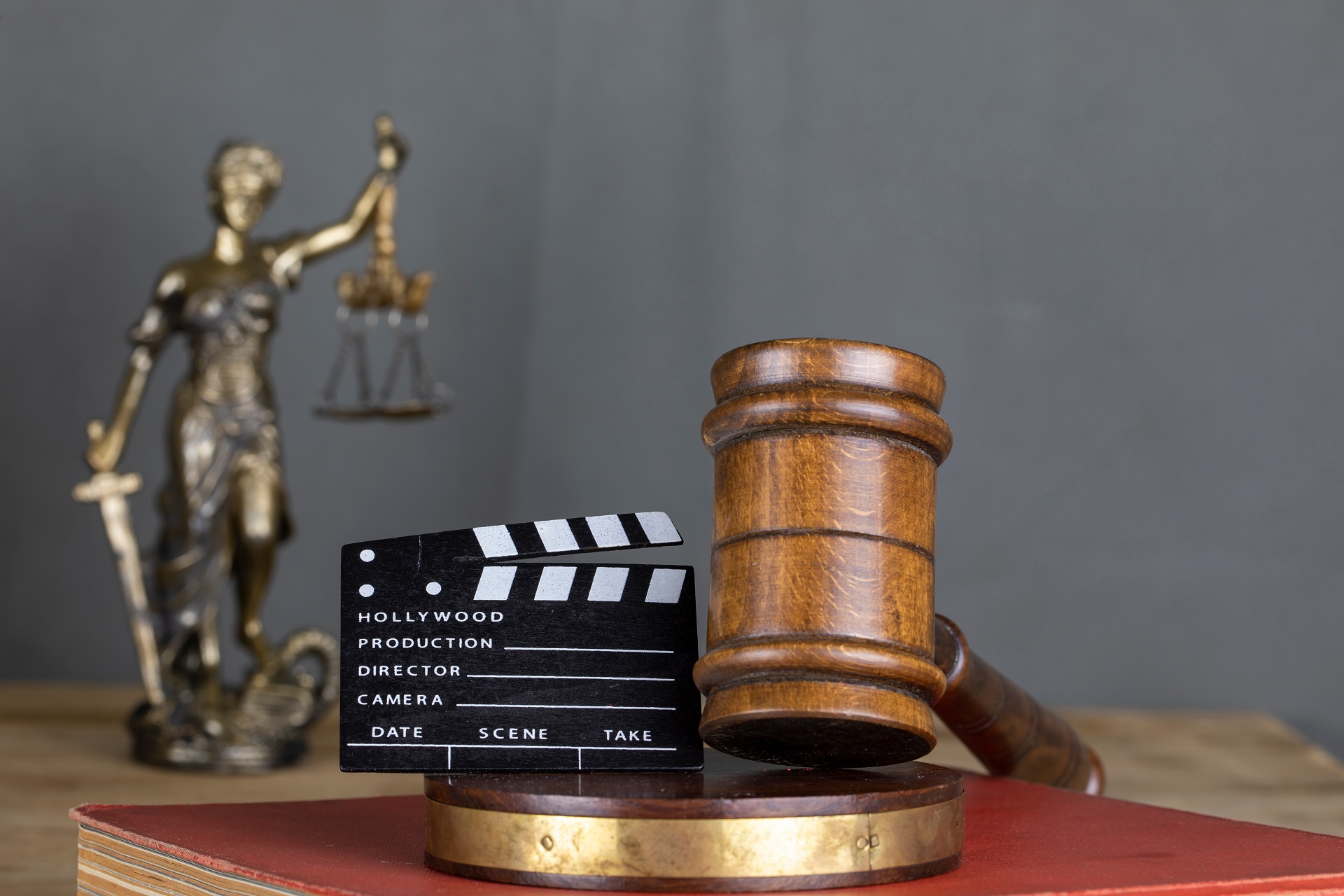What is entertainment law? If you are involved in the entertainment industry, this is a question you may have asked yourself. Entertainment law is a specialized area of law that deals with legal issues related to the entertainment industry, such as music, film, television, theater, publishing, and sports. This can include issues related to intellectual property, contract negotiations, employment disputes, and licensing agreements.
How And Why Become An Entertainment Lawyer?
Becoming an entertainment lawyer requires a combination of education, experience, and networking. Here are some steps to becoming an entertainment lawyer:
How To Become An Entertainment Lawyer?

HOW TO BECOME AN ENTERTAINMENT LAWYER ✍️
- Obtain a law degree- The first step to becoming an entertainment lawyer is to obtain a law degree. This typically involves completing a three-year Juris Doctor (JD) program at an accredited law school.
- Pass the bar exam- After completing law school, you must pass the bar exam in the state where you wish to practice law. Each state has its own bar exam, which tests your knowledge of state and federal law.
- Gain experience in the entertainment industry- To become an entertainment lawyer, it is important to gain experience in the entertainment industry. This can include working for a record label, film studio, or talent agency. This experience will help you understand the unique legal issues that arise in the entertainment industry.
- Build a network of contacts- Networking is key to becoming an entertainment lawyer. Attend industry events, join professional organizations, and connect with other entertainment professionals. Building relationships with other professionals in the industry can help you find clients and job opportunities.
- Specialize in entertainment law - Once you have gained some experience in the entertainment industry, you may want to specialize in entertainment law. This can involve taking additional courses or earning a certificate in entertainment law.
Why Become An Entertainment Lawyer?
There are several reasons why someone may choose to become an entertainment lawyer. Here are a few:
- Passion for the entertainment industry- If you have a passion for music, film, television, or other areas of the entertainment industry, becoming an entertainment lawyer can be a way to combine your legal skills with your love for entertainment.
- Interesting and varied work- Entertainment law involves a wide range of legal issues, from intellectual property to contract negotiations to employment disputes. This can make for interesting and varied work.
- High earning potential- Entertainment lawyers can earn high salaries, particularly if they work with high-profile clients or large entertainment companies.
- Making a difference- As an entertainment lawyer, you can help protect the rights and interests of individuals and companies in the entertainment industry. You can also help shape the future of the industry by advocating for laws and policies that benefit your clients.
Entertainment Law Definition And Types
Entertainment Law

Practicing Entertainment Law | What Is Entertainment Law? Classes You Should Take & Resources
Entertainment law is a specialized area of law that deals with legal issues related to the entertainment industry, such as music, film, television, theater, publishing, and sports. The entertainment industry is unique in that it involves the creation, production, and distribution of creative works, which can involve complex legal issues related to intellectual property, contracts, and licensing agreements. Entertainment lawyers help individuals and companies in the industry navigate these legal issues and protect their rights and interests.
Types Of Entertainment Law
There are several types of entertainment law, each focusing on a specific area of the entertainment industry. Here are some of the main types of entertainment law:
- Music Law - Music law deals with legal issues related to the music industry, such as copyright law, royalty payments, and music publishing agreements.
- Film Law - Film law deals with legal issues related to the film industry, such as financing agreements, distribution deals, and intellectual property rights.
- Television Law- Television law deals with legal issues related to the television industry, such as production contracts, licensing agreements, and rights acquisitions.
- Theater Law- Theater law deals with legal issues related to the theater industry, such as production agreements, licensing agreements, and intellectual property rights.
- Publishing Law- Publishing law deals with legal issues related to the publishing industry, such as copyright law, distribution agreements, and author contracts.
- Sports Law- Sports law deals with legal issues related to the sports industry, such as player contracts, team ownership agreements, and broadcasting rights.
Each area of entertainment law has its own set of legal issues and regulations and requires specialized knowledge and expertise. Entertainment lawyers who work in these areas must be well-versed in the legal issues specific to their industry, as well as the general principles of contract law, intellectual property law, and other areas of law that may be relevant to their clients.
Is Entertainment Law A Good Career?
Entertainment law can be a good careerfor individuals who are interested in the entertainment industry and have a passion for the law. Here are some reasons why entertainment law can be a good career choice:
- Interesting and varied work - Entertainment law involves a wide range of legal issues, from intellectual property to contract negotiations to employment disputes. This can make for interesting and varied work.
- High earning potential- Entertainment lawyers can earn high salaries, particularly if they work with high-profile clients or large entertainment companies.
- Opportunities for networking- The entertainment industry is known for its emphasis on networking and relationships. As an entertainment lawyer, you will have the opportunity to build relationships with other professionals in the industry, which can help you find clients and job opportunities.
- Opportunity to make a difference - As an entertainment lawyer, you can help protect the rights and interests of individuals and companies in the entertainment industry. You can also help shape the future of the industry by advocating for laws and policies that benefit your clients.
However, it's important to note that the entertainment industry can be competitive and demanding, and becoming an entertainment lawyer requires a significant investment of time and effort. Additionally, job opportunities in entertainment law can be limited, particularly for those who are just starting out in the field. Like any career choice, it's important to carefully consider your interests, skills, and goals before deciding if entertainment law is the right career for you.
How To Get Into Entertainment Law?
Getting into entertainment law requires a combination of education, experience, and networking. Here are some steps to consider if you are interested in pursuing a career in entertainment law:
- Obtain a law degree- The first step to becoming an entertainment lawyer is to obtain a law degree from an accredited law school. This typically requires a bachelor's degree, followed by three years of law school.
- Gain legal experience - To build your legal skills and gain experience in the field, consider working as a law clerk or associate at a law firm that specializes in entertainment law. You can also look for legal internships or volunteer opportunities with organizations in the entertainment industry.
- Build your knowledge of the entertainment industry- To be an effective entertainment lawyer, you need to have a solid understanding of the entertainment industry and its unique legal issues. Stay up-to-date on industry news, attend industry events, and consider taking courses or workshops in areas like the music business, film production, or sports management.
- Network with industry professionals - Networking is key in the entertainment industry, and this is especially true for entertainment lawyers. Attend industry events, join professional organizations, and reach out to lawyers and other professionals in the field to build your network.
- Consider specialized education or certification- Some law schools offer courses or programs in entertainment law, and there are also certification programs available for entertainment lawyers. Consider pursuing specialized education or certification to further develop your skills and knowledge in the field.
Who Practices Entertainment Law?
Entertainment law is practiced by lawyers who specialize in legal issues related to the entertainment industry. Here are some of the professionals who may practice entertainment law:
- Entertainment Lawyers- These lawyers work specifically with clients in the entertainment industry, such as musicians, actors, filmmakers, and sports professionals. They may provide legal advice on a range of issues, from contract negotiations to intellectual property rights to dispute resolution.
- Law Firm Attorneys- Lawyers who work at law firms that specialize in entertainment law may also practice in this area. These firms may represent clients in the entertainment industry or provide legal advice to entertainment-related businesses.
- In-House Counsel- Many entertainment companies, such as movie studios, record labels, and sports teams, employ their own legal counsel to handle legal issues that arise within the company.
- Government Attorneys- Government attorneys may also practice entertainment law in some capacity. For example, they may work for regulatory agencies that oversee the entertainment industry or prosecute individuals and companies that violate entertainment-related laws.
Where Do Entertainment Lawyers Practice?
Entertainment lawyers can practice in a variety of settings, depending on their clients and areas of expertise. Here are some of the places where entertainment lawyers may practice:
- Law firms- Many entertainment lawyers work at law firms that specialize in entertainment law. These firms may represent clients in the entertainment industry or provide legal advice to entertainment-related businesses.
- Entertainment companies- Some entertainment lawyers work in-house at entertainment companies such as movie studios, record labels, and sports teams. These lawyers may provide legal advice on a wide range of issues, from contract negotiations to intellectual property rights to dispute resolution.
- Government agencies - Government attorneys may also practice entertainment law in some capacity. For example, they may work for regulatory agencies that oversee the entertainment industry or prosecute individuals and companies that violate entertainment-related laws.
- Nonprofit organizations- Some nonprofit organizations, such as music industry associations or film festivals, may also employ entertainment lawyers to provide legal advice and support to their members.
- Solo practice- Some entertainment lawyers may choose to practice on their own, either as a sole practitioner or as part of a small law firm. This can give them greater flexibility in terms of the clients they work with and the types of cases they handle.
The Serious Business Of Entertainment
The entertainment industry is often associated with glitz, glamour, and fun, but behind the scenes, it is a serious businessthat involves complex legal issues and high-stakes negotiations. From music and film to television and sports, the entertainment industry generates billions of dollars in revenue each year, and the lawyers who work in this field play a crucial role in protecting the interests of their clients.
Entertainment law covers a wide range of legal issues, including contract negotiations, intellectual property rights, labor and employment law, tax law, and litigation. For example, an entertainment lawyer may negotiate a recording contract for a musician, help a film producer secure financing for a movie, or represent a sports team in a contract dispute with a player.
One of the unique aspects of entertainment law is the emphasis on protecting intellectual property rights. This includes copyrights, trademarks, and patents, which are crucial to the success of many entertainment-related businesses. Entertainment lawyers may help their clients register and protect their intellectual property, and they may also help them enforce their rights through litigation or other means.
In addition to legal expertise, entertainment lawyers need to have a solid understanding of the entertainment industry and its trends. They need to be familiar with the various players in the industry, including producers, agents, and studio executives, and they need to be able to navigate the often-complex relationships between these parties.
People Also Ask
What Is The Purpose Of Entertainment Law?
The purpose of entertainment law is to protect the rights and interests of individuals and companies in the entertainment industry. It covers a wide range of legal issues, such as intellectual property, contract negotiations, employment disputes, and licensing agreements.
What Does An Entertainment Lawyer Do?
An entertainment lawyer provides legal advice and representation to individuals and companies in the entertainment industry. They can help with issues related to intellectual property, contract negotiations, employment disputes, and licensing agreements, among other things.
Why Is Entertainment Law Important?
Entertainment law is important because it protects the rights and interests of individuals and companies in the entertainment industry. It ensures that creators are able to protect their original works and profit from their creations and that companies are able to operate within the legal framework of the industry.
Conclusion
What is entertainment law? Entertainment law is a vital part of the entertainment industry. It is a complex and specialized area of law that requires the expertise of experienced lawyers who understand the legal complexities of the entertainment industry.
Whether you are a musician, actor, filmmaker, or another entertainment professional, it is important to understand the legal issues that may arise during your career. By working with an entertainment lawyer, you can protect your rights and interests and ensure that you are able to achieve your goals in the industry.

